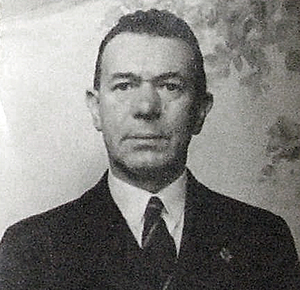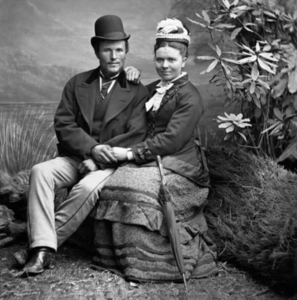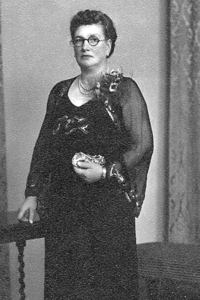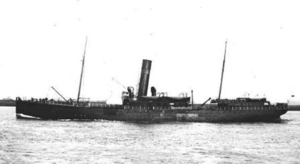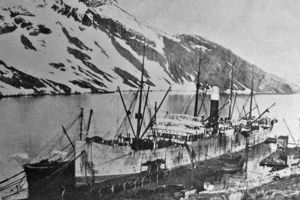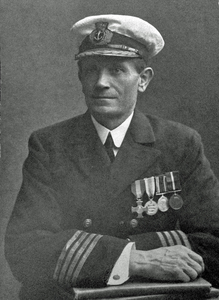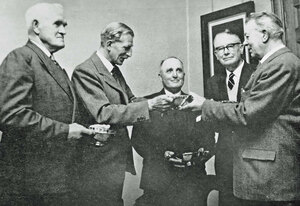BEGG, SINCLAIR
1893-1986 from Scotland
master-mariner, whale factory ship manager, and whaling station manager for the whaling company Chr. Salvesen & Co of Leith, Scotland.
Sinclair Begg was born on 19 June1893 in the far north of the Scottish mainland at Scarfskerry, near Dunnet Head in Caithness; he was one of eight children (John, Isabella, Elizabeth, Margaret, Donald, Christina, Helen and William) of the crofting family of Sinclair Begg (1852-1918) and Isabella (née Thomson) Begg (1853-1926).
Working the land was simply not enough for some crofting families to survive, and many of the young men followed a family tradition and ran away to sea. Sinclair Begg signed on for his first voyage on 1 July 1909, aged 16. He was recruited as an ordinary seaman on the London and Edinburgh Company steamship Fiona, registered at Leith. His first association with Chr. Salvesen was in February 1911 when he joined their steamship Ailsa as a seaman, moving on to the Orkla shortly afterwards. The Begg family were well known to Salvesen’s as his elder brother John (1877-1942) served as the master of Salvesen’s transport ship Ramleh which was trading to the company’s whaling stations at New Island in the Falklands and at Leith Harbour in South Georgia.
Sinclair Begg received his certificate of competency as a second mate from the Board of Trade in July 1919, and by 1920 he was serving as second officer on board the German built cargo ship Tannenberg (7,733 tonnes)which had been handed over to the Ministry of Shipping on 19 July 1919 as a war reparation.
Begg received his first mate’s certificate in January 1921, and his master’s certificate in May 1923. He re-joined Chr. Salvesen & Co. in 1921 serving on the steamship Soutra while his brother John was serving as master of their transport ship Overdale serving the whaling station on South Georgia. The first record that exists for Sinclair in command of a Salvesen vessel that was also trading to South Georgia was when he was appointed master of their freighter Sellasia in 1928, moving to the Seringa in 1930. This was at a time when his brother John continued to be engaged by the Salvesen company as master of the freighters Ravenstone and Brandon, both serving South Georgia and the pelagic whaling fleet.
Sinclair Begg married Catherine (Kitty) Allan (born 9 May 1892) on 25 September 1925; they had two daughters – Catherine, and Elizabeth (who died aged 3 months)
Following the contraction in the whaling industry after 1931, Sinclair’s brother was appointed master of the four-masted supply ship Coronda (2) (7,380 tonnes) the ex-Harrison liner Politician which had been purchased in 1922 for conveying crews and stores to the whaling station at Leith Harbour and fitted with fixed tanks for carrying whale oil in bulk. The only record of Sinclair serving the company in a similar capacity during the 1930s was as master of the transport and former whale factory Sevilla in 1934, but he was most probably engaged throughout this period as master of one of Salvesen’s merchant vessels.
Captain Sinclair Begg served with distinction in both world wars. During World War II, the Coronda(2) was taken over by the Ministry of Transport serving on Trans-Atlantic convoys and Sinclair Begg was appointed master. One of the stories he told to his family was that when crossing the North Atlantic during the war he reminisced his luck at not being attacked by a U-boat, commenting that "The Germans looked through their periscope and upon seeing a four-masted ship, just assumed that they had had a little too much rum." But on 15 September 1940 Coronda (2) was attacked by German aircraft near Liverpool while on passage from Iceland to Liverpool with herring oil. The London Gazette of 31 January 1941 records:
Captain Begg's ship was bombed and set on fire. The ship's hose was at once connected up and the fire was tackled. The cargo was highly inflammable and there was danger of the magazine exploding. The Master decided to send off in the boats all the crew except the fire-fighting party. This party, consisting of himself, his 2nd and 3rd officers, the Carpenter, the Chief Steward and the Radio Officer, extinguished the fire on deck and then worked on the flames between decks, being helped by an escort vessel. After some hours the fire, though still burning, was under control, the crew were brought back on board and the ship taken in tow and anchored. By their brave action, under the determined leadership of Captain Begg, the fire party saved not only the ship but also her valuable cargo.
Sinclair Begg was awarded the OBE (Civil Division) for his actions. In 1945 the Coronda (2) was de-commissioned: she was broken up a year later.
During World War I his brother John has also been commended for his bravery in the face of German U-boats on two separate occasions. In the first instance he was awarded with the Distinguished Service Cross (DSC) and on the second he won the Lloyds Silver Award for Meritorious Sea Service. Captain John Begg died in 1942.
After World War II, there was a great demand for whale oil to help feed a starving Europe and in 1945 Begg was given command of Salvesen’s tanker/transport Southern Opal supporting the Leith Harbour station and Salvesen’s pelagic fleet working in the Southern Ocean. The following season 1946/47 he was appointed master of Salvesen’s newly constructed factory ship Southern Harvester on her maiden voyage to Antarctic waters, where former South Georgia magistrate Edward BINNIE served as ship’s secretary. In 1947 he was appointed as manager of Leith Harbour (a post traditionally held by Norwegians.) by Christian Salvesen & Company while at the same time commanding the transport ship Saluta which voyaged to and from Scotland to South Georgia at the beginning and end of each whaling season. This arrangement continued until 1950, during which time he brought a number of penguins back for the Edinburgh Zoo.
In 1948 Harold SALVESEN and Gerald ELLIOT made a visit to the South Georgia to review the operation of Leith and Stromness whaling stations. Elliot recalled that while walking alongside the quay at Stromness, Harold Salvesen was so engrossed in conversation that he failed to notice how close he was to the edge of the pier, and nearly fell into the water twenty feet below. ‘Fortunately, Captain Begg, the station manager, shot out an arm and just in time grabbed him back to safety’.
On his return to Scotland in 1951, Sinclair Begg took an office job at Salvesen’s offices in Leith, but because of his wife’s failing health he wished to spend as much time as possible with her, and therefore he retired in 1951.
Begg was an enthusiastic support of local football and rugby teams; he had a season ticket for the Hibernian football team, and he often went to the Murrayfield to watch international matches. He was a very keen on lawn bowls and was president of his local bowling team until he was 84. Begg was very close to his sisters and their families, and while he was still able to drive, he would spend his time travelling around Scotland visiting and staying with them.
The family of Sinclair Begg remember him with affection:
He could read the weather better than any forecaster. He never stopped observing it, and he applied that skill to the family laundry in his retirement years. It never, ever got rained on … He was wise, quiet, modest, non-judgmental and reserved. People flocked to him; he was a natural leader who inspired people, but I think he found it all a bit alarming. He was catapulted into it all by the times [he lived in] and his sense of duty, rather than having chosen it.
Captain Sinclair Begg was a robust and colourful character in the true Scottish tradition, like many of his countrymen who ventured south to earn a living from the whaling industry. He worked his way up from cabin boy to be master of several ships. His name is commemorated by Begg Point (54°3′S 37°59′W) which is a headland forming the northeast side of the entrance to Johan Harbour, on the south coast and near the west end of South Georgia. It was surveyed by the South Georgia Survey, 1956–57, and named by the UK Antarctic Place-Names Committee for Sinclair Begg.
Captain Sinclair Begg died, in Edinburgh on 3 May 1986; his wife Kitty having predeceased him on 12 September 1952.
Comments
Reginald Knowles
2024-04-13 16:24:22 UTC
I am the great Nephew of John and Sinclair Begg. Several years ago I visited the Begg Croft, not much of croft remains and is nolonger habitable.
Reg Knowles
Revisions
October 2021 Biography first added to Dictionary
